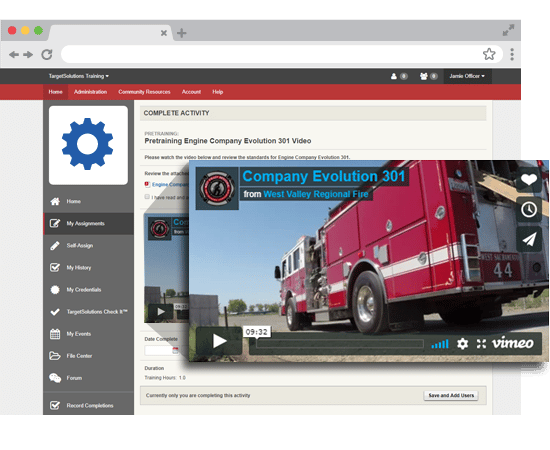May 7, 2024 4 min read

How Police Agencies Can Streamline Public Records Requests with Software
Industry:
Solution:

The last few years have seen a dramatic surge in the scrutiny of law enforcement. The public’s expectations for accountability and transparency have increased and, consequently, the volume of public records requests directed towards these agencies has grown as well. This reflects the growing demand for access to information about law enforcement operations, training, and officer conduct.
By being more transparent with their communities, agencies can take an important step to foster trust and positive relations with community members. However, this influx in records requests also puts a significant burden on these agencies, many of which are already facing increased strain from staffing shortages, low morale, dwindling budgets and other common challenges faced by today’s law enforcement agencies.
Why agencies are struggling with public records requests
Beyond the sheer volume of these requests, the actual process of fulfilling them can also be a struggle in and of itself.
In 1967, Freedom of Information Act was passed, which requires the full or partial disclosure of certain information by the federal government. In the time since, all 50 states have passed similar legislation that gives citizens the right to submit a request for information. State and local agencies are required by law to respond, typically within a specified timeframe. Colloquially, these are known as “FOIA laws,” though specific titles vary by state.
Which records are available for disclosure and which are exempt also varies by state, with many states recently passing legislation to amend those parameters, particularly in regard to law enforcement. The time agencies have to respond to a records request is also determined by the state, but could be as few as three days, as long as 15, or only specified as “as soon as practicable.”
Altogether, the burden records requests place on law enforcement entities is immense, such as:
- Public scrutiny of law enforcement increasing the volume and breadth of information requested
- Responding within the required timeframe, either with the requested information, a denial when appropriate, or with a statement that more time will be necessary
- Sorting through records and finding the specified information, often requiring contacting multiple departments within the agency
- Ensuring only the information that’s considered “public” is disclosed and making redactions when needed
- Contending with staffing shortages, which further exacerbate the process
At a larger agency, there may be a records unit that is responsible for responding to requests and gathering information. At a smaller agency, the burden will typically fall to agency leadership, the heads of each unit, and/or other administrative staff.
How can agencies ease the burden of FOIA requests for training documentation?
Regardless of whether you have a dedicated records unit or not, the individuals responsible for responding to the request will still need to spend the time to gather the correct information and make whatever redactions are necessary. This might be body-worn camera audio or footage, it could be incident reports, training records, officer conduct records or any other documentation that legislatures have decided is available to the public.
If those individuals leverage modern technology, gathering the information only requires pulling data from the various software systems your agency uses. If they’re still relying on outdated processes, they may be sorting through filing cabinets, binders, folders, and paper-clipped stacks of paper. Beyond the risk of papercuts, sorting through physical records is also a much more time intensive and laborious process.
There are few if any agencies out there without a CAD or RMS. On the other hand, a police training management system (TMS) is an often overlooked, but no less essential digital tool.
With a TMS, law enforcement agencies can:
- Securely store all training documentation for your officers in one system, including online training, in-person training, FTO/PTO, in-service and more
- Collect and archive other training-related data as required, including course outlines, instructors, the date/time of training, rosters and any other relevant information
- Ensure records retention requirements are met and more easily dispose of records when the time comes
- Deliver policy updates through the TMS and store officer acknowledgements for retrieval as needed
With all your training-related documentation in one secure system, gathering training data needed for a public records request can take minutes instead of hours, days, or even weeks.
For more on selecting the right TMS for your agency, download our buyer’s guide.
Download
Whether you’re a local department, state police, academy, POST, or other governmental agency, or are in need of a system to connect the dots between them all, the police training management system that’s right for you can be found with Vector Solutions. To learn more, request a demo today.
Vector Solutions’ suite of industry-leading software solutions for law enforcement includes training management systems, online training courses, FTO/PTO/CTO/live skill evaluations, academy automation, and an early intervention and conduct management system.











